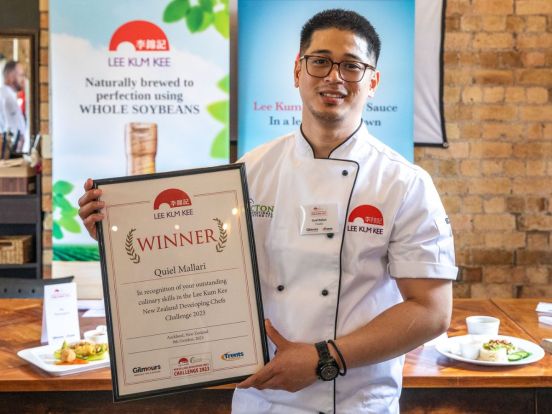In an era where corporate responsibility often feels like lip service, Sudima Hotels and My Native Forest are planting the seeds of real change.
Sudima Hotels and Novotel Christchurch Airport hotel are among the more than 100 individuals, organisations, and businesses partnering with My Native Forest through tree funding and carbon sequestration initiatives, all focused on native forests.
The collaboration sprouted from a simple idea as Sammy Barker, Sustainability Specialist at Sudima Hotels, explains: “Seeking out meaningful partnerships within the community is part of our national care team initiatives. The team contacted My Native Forest around March to begin planning the first tree planting day.”
Purau Bay Planting
The inaugural planting day at Purau Bay saw 20 Sudima Hotels and Novotel Christchurch Airport hotel staff members transform into amateur arborists.
Andy Irvine, Maintenance Engineer at Sudima Christchurch City, who helped organise the initiative says, “We planted close to 800 trees on the day. It was an incredibly rewarding and humbling experience.
“The Purau restoration will enhance biodiversity, create new habitats, and eventually provide public access to a natural environment showcasing a bike trail and a rock-climbing wall nestled amongst the Ngaio, Totara, and range of native trees and shrubs.”
This enthusiasm is exactly what Mitchell McLaughlin of My Native Forest hopes to foster: “The sense of fulfilment among participants at the end of each session is always a highlight. Seeing people take such care in planting, knowing their work will leave a legacy that could last a thousand years or more, is incredibly rewarding.”
Economically Viable
My Native Forest’s vision extends beyond simple reforestation says Mr McLaughlin. “We aim to scale the native forestry industry, making it economically viable alongside its environmental and social benefits. This shift is crucial for reversing decades of underinvestment in native forests.
“We believe that people and organisations doing good should be rewarded. If you grow or fund native trees, you should get something in return – in our case, a portion of carbon credits from the projects.
“We hold planting sessions from May to October. These are structured as enriching experiences for participants, emphasising connection with nature over simply planting as many trees as possible.”
Sites are chosen strategically, evaluating everything from the environmental potential and ecosystem needs such as soil stabilisation and waterway cleaning, all the way through to the community benefits such as access to the site and local jobs created through the planting and maintenance.
Hands-on Conservation
This model has caught the attention of businesses like Sudima Hotels. Mr Irvine says, “It was a fantastic day of hands-on conservation work, surrounded by great people, the beauty of Purau Bay, and the spirit of community.”
“Knowing that this area will eventually be accessible to the public as a protected natural space makes the effort even more meaningful. It underscores the importance of community engagement in conservation, and I am grateful to have been part of a project that promises long-term environmental and societal benefits.”
The initiative has also had an impact on Sudima Hotels’ team. Mr Irvine explains “Many of the team are office workers and were thrilled to get amongst it and get their hands dirty with friends and colleagues. I’m expecting more to join next time as the tree planting day created a bit of a buzz in the days after.”
“We will be looking at getting another tree planting day in next year, and in the interim setting up what they call ‘site maintenance’, which is mainly weeding in the early years of establishment.”
Funding Challenge
My Native Forest has big goals for the future as it tackles its biggest challenge: funding.
Mr McLaughlin says, “We prioritise long-term commitment from landowners who have demonstrated dedication to conservation. They are taking on something that will go beyond their lifetime, making this critical.”
“Supporting native forests financially is key, as many landowners are eager to plant or expand existing native forests. Partnering with companies that build a nature funding mechanism into their business model is the best way we see this happening – such as with Sudima Hotels – as their companies succeed, so do our forests.
“We also welcome volunteer efforts from organisations that can provide specialised skills, such as legal support, marketing, or technology solutions like geo-mapping. These contributions help grow the native forestry industry so it can become competitive with exotic forestry.
“We are currently scoping our project for 2026 and beyond, which is really exciting. Funding permitted, it would be great to bring it forward to 2025. We are also exploring other sustainable, long term revenue opportunities for landowners with native forests, this is really important as the costs do not stop after the planting days.”








